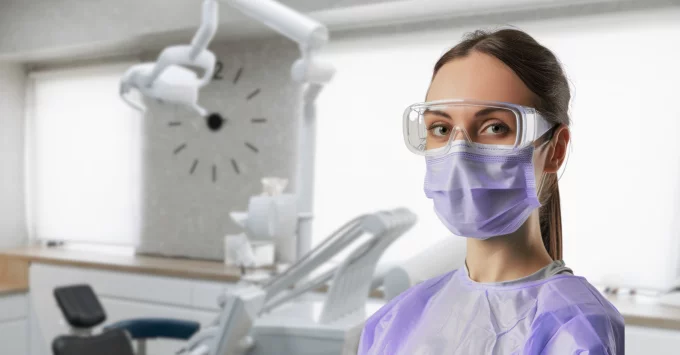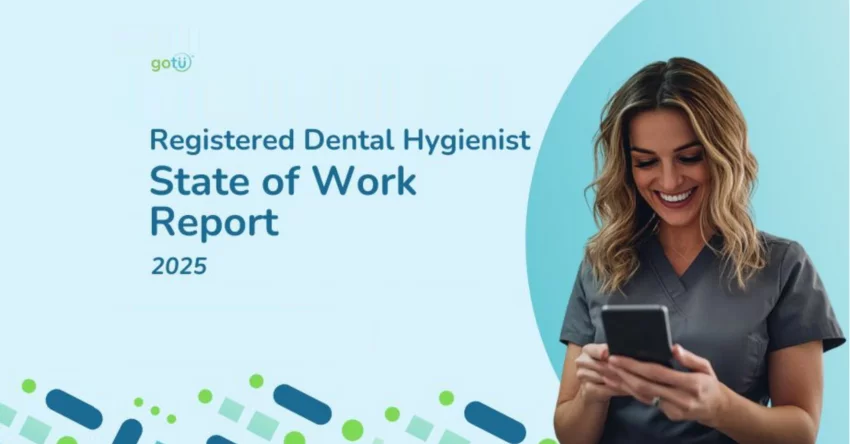By GoTu Marketing Team
July 22, 2025
Let’s set the record straight: Dental hygienists are not support staff.
Dental hygienists are licensed healthcare providers with specialized training in prevention, diagnosis, and person-centered care. They are often the first to identify signs of oral disease and have a critical role in building long-term patient relationships.
Despite this, the language used in both policy and daily practice often fails to reflect the full scope and impact of their work. This isn’t just a matter of semantics—it directly affects how hygienists are perceived, respected, and integrated within the broader healthcare system.
Clinical Expertise That Drives Results
Dental hygienists are well-positioned to provide preventive care that has a significant impact on overall health. They’re trained to detect early signs of periodontal disease and oral cancer, and to identify indicators of systemic conditions such as diabetes and cardiovascular disease—all within a single appointment.

According to the CDC, more than 47% of adults age 30 and older have some form of periodontal disease, with that number even higher among older adults.¹ Hygienists are the key to early intervention and long-term maintenance, roles that directly reduce overall healthcare costs and improve patient quality of life.
This level of responsibility, autonomy, and clinical decision-making is far beyond what “support staff” are typically authorized or expected to perform.
The Time Spent, The Trust Earned
Hygienists are often the primary providers patients interact with during routine dental visits. They spend extended, uninterrupted time with patients, which creates opportunities to build trust, gather health history, and encourage long-term behavior change through education and communication.
When patients feel comfortable and well-informed, they are more likely to follow through with recommended care and stay consistent with preventive visits. This influence extends beyond clinical care—strong hygienist-patient relationships can directly support patient retention, recall rates, and overall satisfaction with the practice.
Licensure, Education, and the Evolving Scope of Practice
Dental hygienists must meet rigorous educational and clinical requirements to practice. The majority of licensed dental hygienists complete an associate or bachelor’s degree in dental hygiene, pass both written and clinical board exams, and maintain active licensure through required continuing education.
Many states have expanded the scope of practice to allow hygienists to administer local anesthesia, provide care without direct supervision in public health settings, and collaborate with other providers in teledentistry models.² These are not ancillary roles—they are provider-level responsibilities grounded in clinical training and supported by state regulatory boards.
Yet outdated terminology and misclassification persist. Referring to hygienists as “support staff” minimizes their education, licensure, and clinical responsibilities. It can also limit opportunities for professional growth and reduce access to advanced roles.
Why Language and Recognition Matter
The way we talk about dental hygienists influences how they are viewed within the profession and the broader healthcare community. Referring to hygienists as providers helps reinforce the value of their clinical expertise and encourages stronger professional recognition.
In some practices, this shift in language may contribute to more collaborative environments and a greater sense of respect among team members. While every workplace is unique, acknowledging the role hygienists play in patient care can foster more positive interactions and long-term engagement.

Respect is more than a feel-good concept—it plays a real role in how teams function and how patients experience care.
Moving Forward
It is time for everyone in the dental industry—from policymakers and educators to practice owners and patients—to reexamine how dental hygienists are described, supported, and integrated into care systems. That begins with acknowledging:
- Dental hygienists are providers, not support staff.
- They are independently licensed, clinically trained professionals who play a vital role in delivering high-quality dental care.
- The care they provide helps prevent disease, expand access, and improve health outcomes for patients and communities.
Recognizing the role of dental hygienists is not simply a formality. It is a necessary step toward building a more effective, inclusive, and sustainable model for oral healthcare.
GoTu will continue to advocate for hygienists as essential providers through flexible work options, transparent pay, partnerships, and insights from professionals themselves. But we need the entire industry to follow suit.
Because when we elevate the role of hygienists, we elevate patient care. And that benefits everyone.
____________________________________
References
1Centers for Disease Control and Prevention, “Gingival and Periodontal Diseases and Conditions,” Morbidity and Mortality Weekly Report, Surveillance Summary 62, no. SS-3 (2013): 21–26, accessed June 16, 2025, https://www.cdc.gov/mmwr/preview/mmwrhtml/su6203a21.htm.
2American Dental Hygienists’ Association, “Scope of Practice,” accessed June 20, 2025, https://www.adha.org/advocacy/scope-of-practice.



